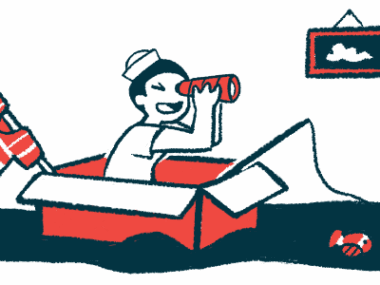Living with SMA makes me feel like an outsider
Finding parallels between 'The Outsiders' and life with a disability
Written by |

When I was in middle school, I became acquainted with Ponyboy, Sodapop, Johnny Cade, and the other “Greaser” boys from the pages of “The Outsiders.” Since its publication in 1967, S.E. Hinton’s seminal novel has continued to resonate with generations of teenagers and young adults from all walks of life. The book speaks to anyone who’s ever felt alone or misunderstood, and it continues to have an impact on readers all these years later.
Even in middle school, I had aspirations of becoming a storyteller. As such, what captured my attention was that Hinton wrote the book when she was still in high school. The fact that she became a successful writer and pioneered an entire genre as a teenager inspired me. Still, I only read it then for a class assignment and didn’t return to it for years.
Then, a couple of weeks ago, I stumbled upon a collector’s edition at my local Barnes & Noble and picked it up on a whim. A light paperback that was just the right size for my atrophied hands to easily turn the pages, the book made for a perfect weekend read. I barely remembered anything about the narrative, so it was more like discovering it for the first time.
“The Outsiders” tells the story of a group of teenage boys in Oklahoma who belong to the Greasers gang. They hang out on the streets, get into trouble with the authorities, and often fight with their rival gang, the wealthy and favored Socs. They’re poor, tough social outcasts, and no matter what, they have each other’s backs.
Embracing life as an outsider
While Hinton’s novel is known for capturing the essence of teenage angst, it also speaks to marginalized communities. Reading it through my lens made me realize how many commonalities those of us with SMA share with the Greasers.
For one, society doesn’t look favorably upon its disabled population. Income limits, inaccessibility, caregiver shortages, and insurance denials for lifesaving treatments are just a few of the hurdles we face on a daily basis. We fight tooth and nail just to make our voices heard, but often it feels like we’re screaming into a void. Likewise, Ponyboy longs for the world around him to accept him and the boys as real people, not the juvenile delinquents that everyone labels them as.
Then there’s the shared sense of unity. Ponyboy is best friends with Johnny, but he doesn’t much care for his brother Sodapop’s friend Steve Randle. Nonetheless, the guys all look out for one another. And when members of the gang die in the story, those who survive feel each other’s pain.
I’ve written about death more than I would like to lately. Just since I reflected on it in a recent column, I’ve lost two more friends, one who had SMA and one who had muscular dystrophy. Often I become numb to loss and grief, and as such, I struggle to properly honor each friend’s passing.
And yet, I wouldn’t trade my unique and exhilarating SMA life for anything. The part of “The Outsiders” that resonates with me the most is that the characters embrace that title. They know they don’t fit into the conventional standards that society expects of them and everyone else. They look different, dress differently, and are proud of their abnormalities.
Those of us in disability communities live in a world that regularly fails to accommodate us. Yet with every obstacle we face, we’re stronger together. Living with SMA makes me an outsider, and I wouldn’t have it any other way.
Note: SMA News Today is strictly a news and information website about the disease. It does not provide medical advice, diagnosis, or treatment. This content is not intended to be a substitute for professional medical advice, diagnosis, or treatment. Always seek the advice of your physician or other qualified health provider with any questions you may have regarding a medical condition. Never disregard professional medical advice or delay in seeking it because of something you have read on this website. The opinions expressed in this column are not those of SMA News Today or its parent company, Bionews, and are intended to spark discussion about issues pertaining to spinal muscular atrophy.





Leave a comment
Fill in the required fields to post. Your email address will not be published.